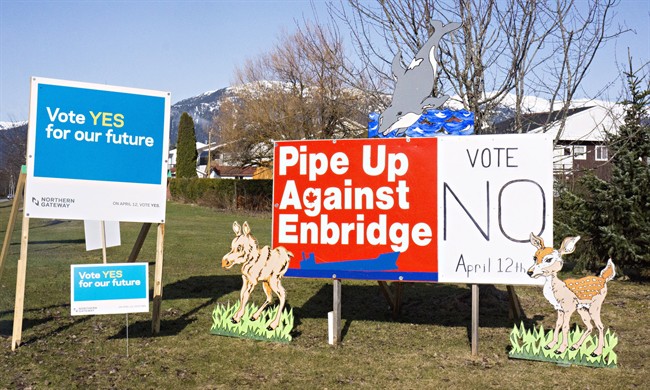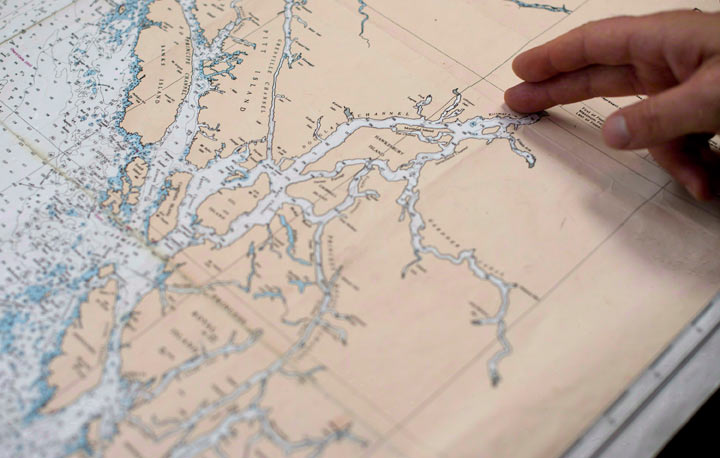TORONTO – The Northern Gateway pipeline project has pitted oil producers against environmentalists and aboriginal stakeholders for years, and the Tuesday decision comes amid public opinion that’s largely divided by region.

The Northern Gateway pipeline would run from oilsands just outside Edmonton, Alberta across the Rockies to Kitimat, B.C., where oil would be shipped in supertankers to Asia.
READ MORE: Facts and figures on the Northern Gateway pipeline
Public opinion isn’t inconsequential: 2015 is a federal election year, which means the pipeline could be top of mind for many voters as they fill out their ballots.
Various polls suggest Stephen Harper’s government has the most to lose in B.C.
Two weeks ago, a Bloomberg-Nanos Survey found only three out of 10 British Columbians (at 29 per cent) would support approval: 34 per cent of residents surveyed by phone didn’t want it approved at all, and 33 per cent want the project delayed for further review.
Crude Awakening: Oil spills and oversight in Alberta
Just over two months ago, Kitimat, B.C. residents voted “no” to Northern Gateway in a non-binding April referendum: 1,793 opposed versus 1,278 who supported the pipeline.
Until the vote, Kitimat had remained neutral in its opinion on the project—the town didn’t take part in the joint-review process, which heard from hundreds before a federal panel approved the project with 209 conditions. The vote was held largely to fulfil a 2011 municipal election promise to poll citizens of Kitimat on the pipeline.

Four months before that, a November poll of British Columbians showed support for the pipeline had increased, and suggested the “strong opposition” to the pipeline had dropped nine points to 29 per cent.
“At the start of the year, strong opposition to the Northern Gateway outranked strong support by an almost 4-to-1 margin—now it’s less than 2-to-1,” said Insights West spokesperson Mario Canseco in November.
“While a large proportion of British Columbians continue to have reservations about the project, the numbers are very different from what we observed at the start of the year.”
That poll surveyed 749 people online, but noted that only 20 per cent of respondents labelled themselves as “very familiar” with the proposed pipeline.
READ MORE: If Northern Gateway is approved, slew of lawsuits begin
In an October poll by Forum Research, only 37 per cent of British Columbian respondents thought Northern Gateway was a good idea, as did 28 per cent of Atlantic respondents and just a quarter of Quebeckers. Support was highest in Alberta, at 66 per cent.
In an October interview, Forum’s Lorne Bozinoff said his organization had been tracking Canadian attitudes towards pipelines including Northern Gateway for about two years, and said opposition has been “widespread.”
But in Alberta, mayors are voicing support for the pipeline: Two mayors of the province’s Capital Region Board—which includes 24 municipalities surrounding Edmonton—have emphasized the importance of getting Alberta energy to B.C.’s shore for the economy.
University of Alberta political science professor Dr. Jim Lightbody said it looked like the Capital Region Board was “lobbying people who are already persuaded,” and said energy would be better directed to addressing environmental concerns of First Nations groups, who have vowed to fight the project.


Comments